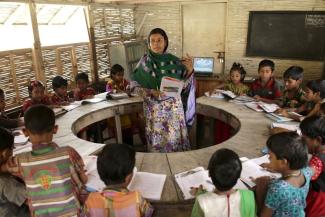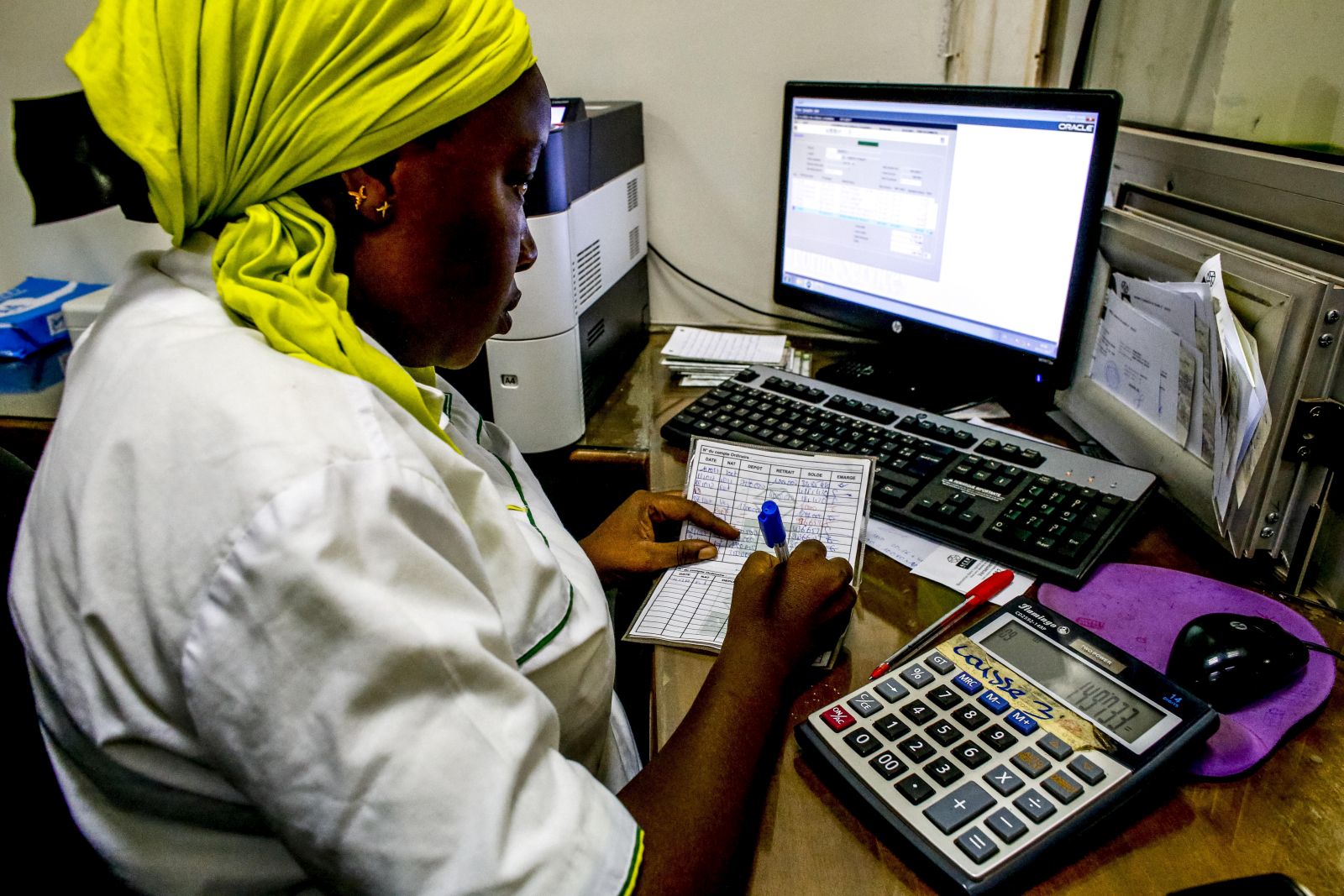Global Monitoring Report
Education for all not achieved

The authors of the report, that was commissioned by UNESCO, criticise that EFA lost global attention once the MDGs became the dominant development agenda. “The result was excessive emphasis on universal primary education,” they write. While this target was more applicable to the poorest countries, other nations found it less relevant. According to the findings, the focus on universal primary enrolment meant less attention to other crucial areas such as education quality, pre-school care and adult literacy.
Nonetheless, the GMR acknowledges that there has been tremendous progress since 2000. The number of children and adolescents who were out of school has fallen by almost half. The monitoring of education progress has also improved. According to the GMR, the greatest progress was achieved in gender parity, particularly in primary education. However, gender disparity still exists in almost a third of the countries for which UNESCO has data.
There are shortfalls in other areas too. The authors state: “Overall, not even the target of universal primary education was reached, let alone the more ambitious EFA goals, and the most disadvantaged continue to be the last to benefit.” Education remains under-financed because only few governments prioritise education in national budgets. Moreover, donor governments have reduced aid to education since 2010 and not sufficiently prioritised the countries most in need.
Stagnating enrolment ratio
The achievement of universal primary education is considered the most important EFA indicator. While the global primary enrolment ratio increased from 84 % in 1999 to 91 % in 2007, the indicator has since stagnated. It is estimated to reach 93 % in 2015 at best. Dropping out of school remains an issue: in 32 countries, mostly in sub-Sahara Africa, at least 20 % of children enrolled are not expected to reach the last grade. By the 2015 deadline, one in six children in low and middle income countries who should have completed primary school were expected not to have done so. In total numbers, almost 100 million children are concerned.
The problem of out-of-school children is becoming increasingly concentrated in conflict countries. Thirty-six percent of out-of-school children are living in conflict zones, especially in the Arab region, and the proportion is growing.
The report team found that the most disadvantaged people are still furthest from achieving universal primary completion. They estimate that children from the richest quintile of families were five times more likely to attain full primary education in 2010 than those from the poorest quintile. That ratio had only slightly improved since 2000. Gender, location and ethnicity also had an impact on access to school.
According to the GMR, major efforts must be made to prioritise disadvantaged and marginalised children in the next decade, particularly children with disabilities and those living in disaster situations. Furthermore, the commitment to school access must go along with a focus on learning and relevance. Improving quality could ensure that public education systems become a vehicle for upward mobility, especially for disadvantaged people. Finally, the authors call for stronger action on financing across the board.
Katja Dombrowski
Link:
EFA Global Monitoring Report 2015:
http://unesdoc.unesco.org/images/0023/002322/232205e.pdf










